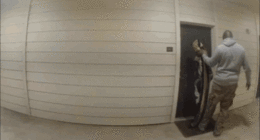Share this @internewscast.com
The King is set to stay in hospital longer than originally planned following surgery last week. King Charles has extended his stay at The London Clinic in Marylebone for another night.
He was due to spend just two nights there after the procedure, which was carried out on an enlarged prostate on Friday. His discharge has since been delayed to at least a third night.
Now a doctor has spoken exclusively with Express.co.uk about whether this delay should be cause for concern.
Doctor Deborah Lee, from the Dr Fox Online Pharmacy, explained more about the operation the monarch underwent.
“The aim of surgery for an enlarged prostate is to make the prostate smaller,” she said.
The prostate is a gland, usually the size of a walnut, that sits between the base of the bladder and the origin of the penis.
The urethra – the tube that carries urine from the bladder to the outside world – runs through the middle of the prostate.
Benign enlargement of the prostate, which is also known as prostatic hyperplasia, is common in men as they age.
Dr Lee continued: “As the prostate enlarges, it squeezes the urethra meaning a man finds it harder and harder to pass urine.
“He may feel he needs to pee frequently, but only passes small amounts of urine and has a poor stream. It may take a while to start to pee, and he may find when he stops, the urine continues to dribble.
“An enlarged prostate can mean a man has to get up frequently during the night to pee. Sometimes an enlarged prostate can lead to urinary tract infections (UTIs) in men, or acute urinary retention – meaning the bladder is full but he cannot pee.
“This is a urological emergency and is painful and very distressing.”
According to Dr Lee, the most common type of prostate surgery is called a transurethral resection of the prostate (TURP).
In this procedure a thin plastic tube called a resectoscope is inserted through the penis, being passed down the urethra.
It contains a tiny camera and an electrical loop, and it is used to remove prostatic tissue through the urethra. It cuts and seals blood vessels as it goes.
The procedure usually lasts about 90 minutes and is done under a general anaesthetic.
Following surgery a urinary catheter is inserted to ensure urine does not come into contact with the surgical wound.
“This is left in place for two to three days,” Dr Lee said. “It’s common to see blood in the urine in the first one to two days after the procedure.”
Risks of a TURP include:
- Bleeding – Around one in 100 men have to go back to the operating theatre because of bleeding
- Infection – UTIs are common
- Low sodium in the blood – This can result in symptoms such as dizziness, confusion, nausea, vomiting, headache and a slow heart rate
- Perforation – Very rarely, as a result of surgery there is a hole in the prostate and urine can drain into the pelvis/abdominal cavity
- Risks of a general anaesthetic – These include a sore throat after being intubated, nausea and vomiting.
Dr Lee added that the fact the King has extended his hospital stay should not be cause for alarm.
“It’s quite normal to be in hospital for one to three days after a TURP,” she said. “The fact King Charles has had three days in hospital is par for the course.”









